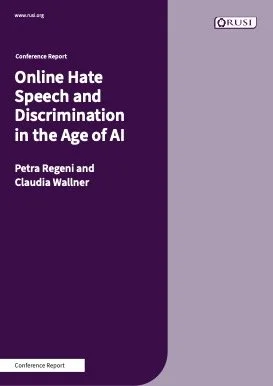By Petra Regeni and Claudia Wallner
RUSI and the Institute for Strategic Dialogue (ISD) Germany convened a closed-door roundtable event in Berlin on 31 March 2025 to discuss online hate speech and discrimination in Europe in the age of AI. The roundtable included presentations across three sessions (corresponding with the sections of this paper) and participants from academia, civil society, advocacy groups, legal non-profit organisations and the private sector. The event provided a space to discuss online hate speech and discriminatory rhetoric – ranging from antisemitism, misogyny and anti-LGBTQI+ narratives to racism and xenophobia – as well as the implications of AI in their spread and amplification. Discussions centred around the complexities introduced by AI-generated and targeted hate speech, and explored potential responses, from regulatory measures and content moderation to educational initiatives promoting critical thinking skills. This conference report summarises key themes and points raised during the roundtable, none of which are attributable to individual participants and presenters.
Conference Report
London: Royal United Services Institute for Defence and Security Studies (RUSI), 2025, 13p.



